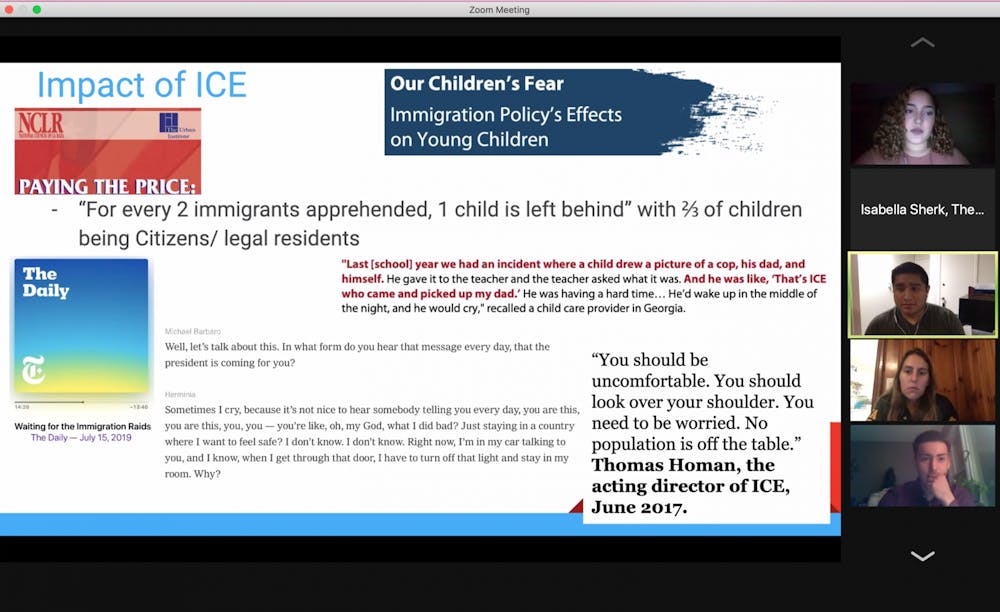Salvador Chavero Arellano, a senior at Duke University and a member of Lambda Upsilon Lambda Fraternity, said U.S. Immigration and Customs Enforcement was always looming when he was growing up.
“I call it the monster under my bed that hasn't come for me, but you don't know when they're coming,” Chavero Arellano said.
Lambda Pi Chi Sorority, Lambda Upsilon Lambda Fraternity and Students United for Immigrant Equality hosted an event on Nov. 2 called "ICE, Its impact, and What We Must Do." The event centered around ICE's impact and what universities — including UNC — can do to help Deferred Action for Childhood Arrivals recipients and undocumented students.
Marco Chumbimuni, a chairperson of the Students United for Immigrant Equality, then spoke about the impact of ICE on the Latinx and immigrant communities. Chumbimuni said though many people have focused on the children separated on the border as a result of President Donald Trump’s zero-tolerance policy, ICE had a significant impact long before then.
“But ICE has done more since 2003, and has been doing this in the living rooms of our neighborhoods,” Chumbimuni said. “And it's impacted everyone from children to mothers to fathers and has even affected children before they were born.”
For José Cisneros, a UNC alum and Somos Carolina Program Manager at LatinxEd, it became second nature to be cautious in day to day life, he said.
“You got to be careful because you never know when it could happen to you,” Cisneros said.
College as a DACA recipient
Guest speakers Chavero Arellano and Cisneros said they were able to attend college as DACA recipients — but it was not easy. They didn’t qualify for in-state tuition in North Carolina because of their status. Both said they worked hard in high school and became a part of a program called Golden Door Scholars that made it financially possible to attend college.



